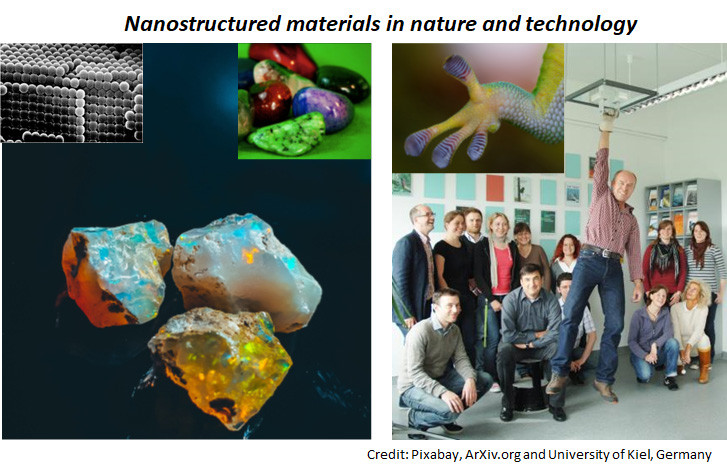The course is focused on describing different types of nanostructured materials, and to provide explanations to the unique properties of nanostructured materials. The nature is full of nanostructured materials with fascinating organization and function. Some of these will be described with emphasis on structure-function relationships. Similar nanostructures and their use in some current technology areas will also be addressed. Self-association phenomena, preparation methods, and characterization methods will be discussed.
KD2170 Nanostructured Materials 7.5 credits

Nanotechnology enables new solutions for solving the problems of today and tomorrow in areas ranging from medicine to materials science, and it is expected to be an important step in the strive towards a sustainable society.
Nanomaterials and nanostructured materials are increasingly produced and applied in many technical applications to enhance, e.g. material properties. This course aims to provide an understanding of how nature uses nanostructured materials to achieve certain properties and how similar materials can find use in different applications to achieve the material properties we are after.
Information per course offering
Information for Spring 2026 Start 16 Mar 2026 programme students
- Course location
KTH Campus
- Duration
- 16 Mar 2026 - 1 Jun 2026
- Periods
Spring 2026: P4 (7.5 hp)
- Pace of study
50%
- Application code
60907
- Form of study
Normal Daytime
- Language of instruction
English
- Course memo
- Course memo is not published
- Number of places
Min: 12
- Target group
- No information inserted
- Planned modular schedule
- [object Object]
- Schedule
- Part of programme
Master of Science in Engineering and in Education, year 4, MAKE
Master of Science in Engineering and in Education, year 5, MAKE
Master's Programme, Macromolecular Materials, year 1, POTE
Master's Programme, Macromolecular Materials, year 1
Master's Programme, Molecular Science and Engineering, year 1
Contact
Course syllabus as PDF
Please note: all information from the Course syllabus is available on this page in an accessible format.
Course syllabus KD2170 (Spring 2020–)Content and learning outcomes
Course contents
Intended learning outcomes
After completion of the course the student will be able to:
- Describe what nanostructured materials are and give examples of such materials in nature and in technology. This includes their special physical properties and how these properties are utilized in nature and in certain technology areas.
- Characterize nanostructured surfaces, written report.
- From literature studies, be able to describe a specific area within the field of nanomaterials, oral presentation and written report.
Literature and preparations
Specific prerequisites
At least 150 credits from grades 1, 2 and 3 of which at least 110 credits from years 1 and 2, and bachelor's work must be completed, within a programme that includes:
75 university credits (hp) in chemistry or chemical engineering, 20 university credits (hp) in mathematics and 6 university credits (hp) in computer science or corresponding.
Literature
Meddelas på första lektionen.
Examination and completion
Grading scale
Examination
- PRO1 - Project, 1.5 credits, grading scale: P, F
- TEN1 - Written exam, 4.5 credits, grading scale: A, B, C, D, E, FX, F
- LAB1 - Laboratory Course, 1.5 credits, grading scale: P, F
Based on recommendation from KTH’s coordinator for disabilities, the examiner will decide how to adapt an examination for students with documented disability.
The examiner may apply another examination format when re-examining individual students.
If the course is discontinued, students may request to be examined during the following two academic years.
Other requirements for final grade
Examination (TEN!; 4,5 credits)
Project (PRO1; 1,5 credits)
Laboratory course (LAB1; 1,5 credits)
Examiner
Ethical approach
- All members of a group are responsible for the group's work.
- In any assessment, every student shall honestly disclose any help received and sources used.
- In an oral assessment, every student shall be able to present and answer questions about the entire assignment and solution.